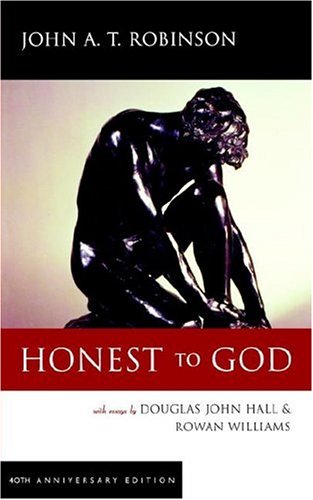Dare you to read it! Double dare you!
This summer, join the TBD group as it explores the radical ideas laid out in a book that rocked more than just the theological world in the 1960s: “Honest to God” sparked a revolution across both the religious and secular worlds. Its ideas were so sweeping and comprehensive that most Christians still have not only never heard of them, but have been warned to beware of anyone that even whispers of the possibility of a conversation about them. Over the years, “Honest to God” has not been “suppressed,” but it certainly hasn’t been recommended to lay people, despite the fact that, in many ways, the whole of contemporary progressive Christianity can claim “Honest to God” as the source and inspiration for its existence.
TBD will be discussing one chapter a month beginning Tuesday night, June 3rd at 7pm at the church. See Barbara Sudderth at church for your copy of the book (or contact her at 480-816-9570). The $20 registration includes a copy of the book and handouts. TBD is open to all who are interested in building bridges of understanding towards whatever is next in the development of what has been called “Christianity.”
Some background:
Just over 50 years ago, the Bishop of Woolwich, John A.T. Robinson, published a little book that caused a firestorm of controversy. Universally condemned by traditionalists, “Honest to God” was hailed as a breath of fresh air by those who could no longer check their brains at the door of the church. Synthesizing the work of some of the most influential theologians of the 20th century (Paul Tillich, Dietrich Bonhoeffer, and Rudolf Bultmann), Robinson called for a revolution in Christian thinking and understanding about God. A British journal commented at the time: “It is not every day that a bishop goes on public record as apparently denying almost every Christian doctrine of the church in which he holds office”.
“Honest to God” makes a case for a reconfiguration of the sacred, a de-emphasis of the supernatural, and a new focus on the reality of our “being” and what lies underneath it. It argues that the belief in a “God-out there” who created the world and pulls our puppet strings is an outmoded and irrelevant creation of human efforts to contain the concept of the Divine.
LLoyd Geering has pointed out that “Honest to God” “sold more quickly and widely than any book of serious theology in the history of the world. I dare to suggest that this record may never be surpassed. Before long its publication had reached a million copies and it was available in 17 languages.” It’s unlikely that any theological book was read so widely in the whole of the twentieth century as this little volume.
So why haven’t you heard of this book? Partly because, while “Robinson’s revolutionary views found fertile soil and helped to cement a new culture of spiritual rediscovery in small segments of the Christian church, most of Christendom, including most of the church hierarchies and the fundamentalist wings of the church persisted with traditional Christian theology.” Isn’t it time that we revisit a book that Bishop John Shelby Spong credits with setting him on the path toward rethinking his beliefs? Are you intrigued by chapter titles like “Reluctant Revolution” and “The End of Theism?” Then get your copy of “Honest to God” and join TBD in great fellowship and good conversation on the first Tuesday of each month at 7pm.
From Robinson’s Preface:
“I am convinced that there is a growing gulf between the traditional orthodox suspernaturalism in which our Faith has been framed and the categories which the ‘lay’ world finds meaningful today. And by that I do not mean there is an increasing gap between Christianity and pagan society…but…many who are Christians find themselves on the same side as those who are not. And among one’s intelligent non-Christian friends one discovers many who are far nearer to the Kingdom of heaven than they themselves can credit. What dismays me is the vehemence–and at bottom the insecurity–of those who feel that the Faith can only be defended by branding as enemies within the camp those who do not [find the traditional framework of metaphysics and morals entirely acceptable].”

